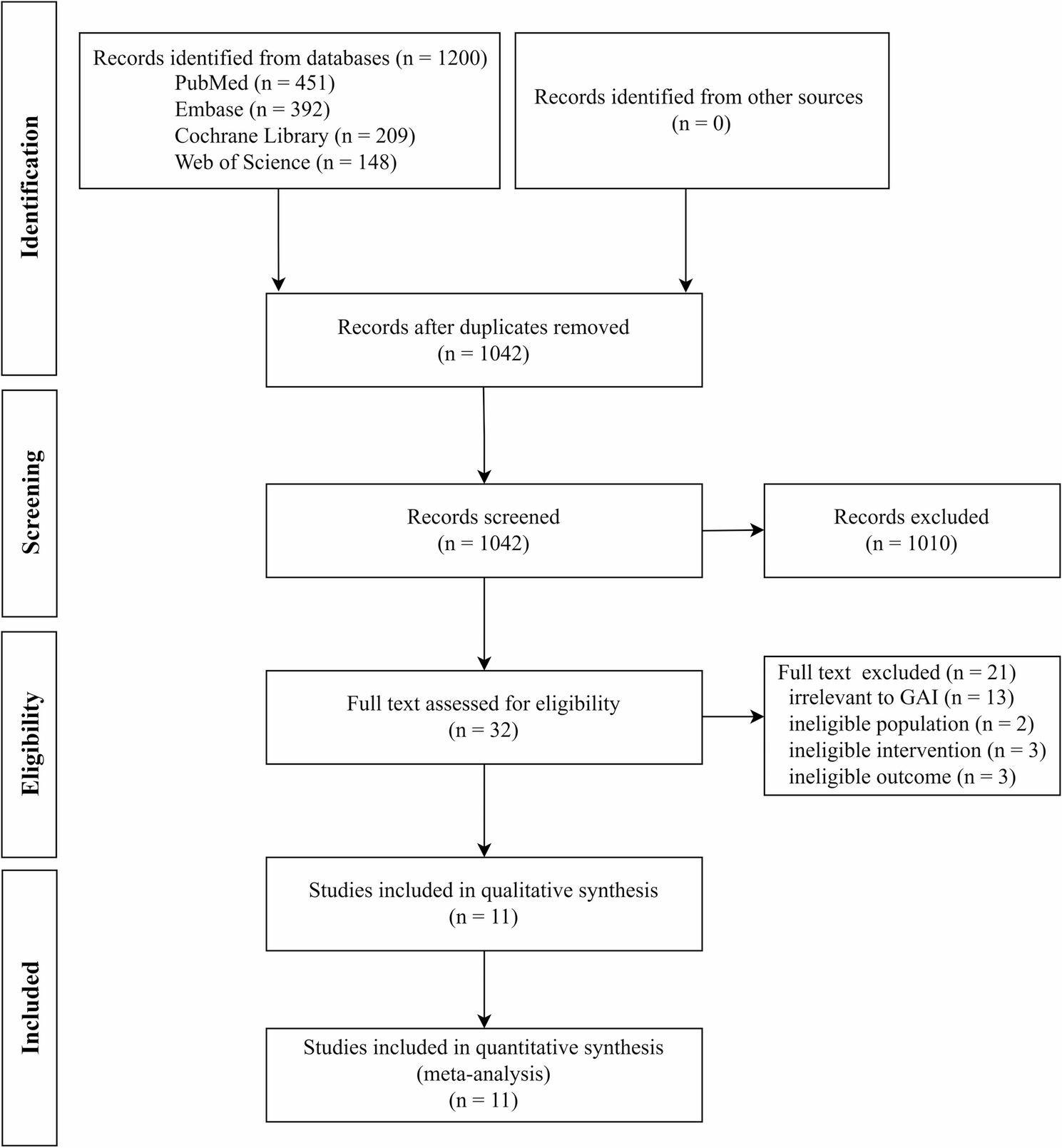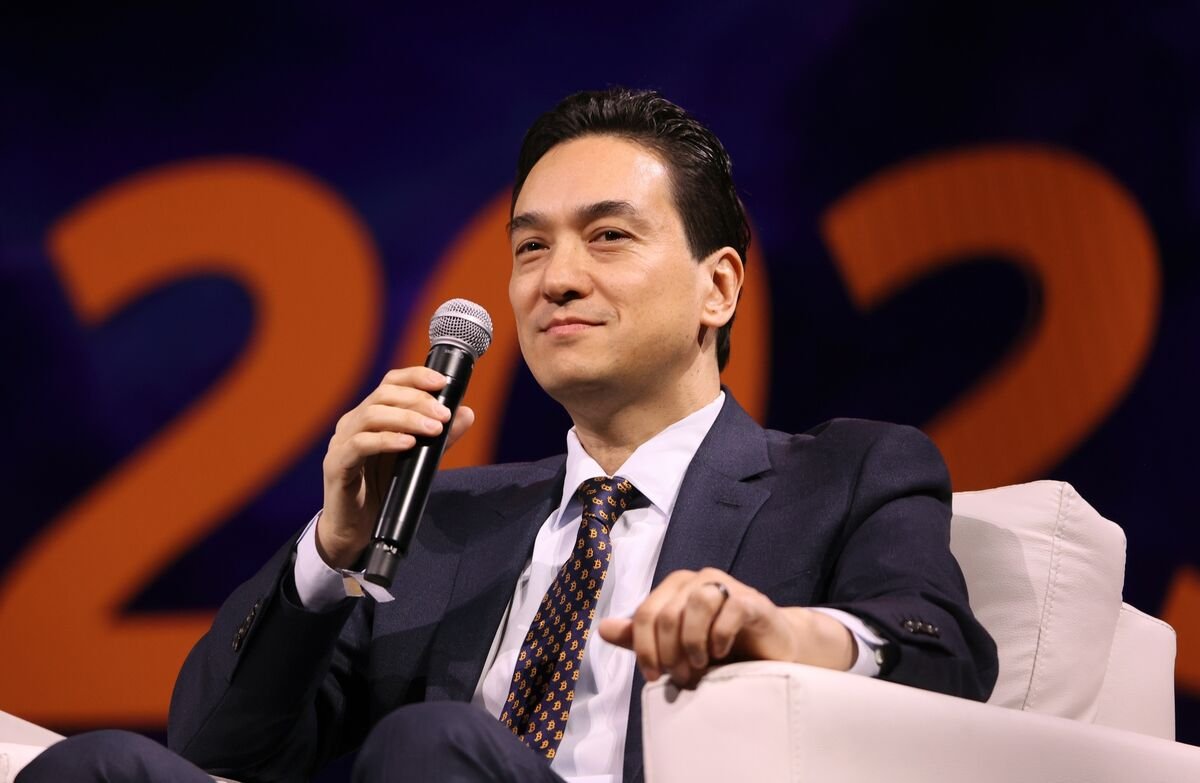AI Insights
Effectiveness of generative artificial intelligence-based teaching versus traditional teaching methods in medical education: a meta-analysis of randomized controlled trials | BMC Medical Education

Wang B, Jin S, Huang M, Zhang K, Zhou Q, Zhang X, et al. Application of lecture-and-team-based learning in stomatology: in-class and online. BMC Med Educ. 2024;24(1):264. https://doi.org/10.1186/s12909-024-05235-2.
Zeng HL, Chen DX, Li Q, Wang XY. Effects of seminar teaching method versus lecture-based learning in medical education: a meta-analysis of randomized controlled trials. Med Teach. 2020;42(12):1343–9. https://doi.org/10.1080/0142159x.2020.1805100.
Saragih ID, Suarilah I, Hsiao CT, Fann WC, Lee BO. Interdisciplinary simulation-based teaching and learning for healthcare professionals: a systematic review and meta-analysis of randomized controlled trials. Nurse Educ Pract. 2024;76:103920. https://doi.org/10.1016/j.nepr.2024.103920.
Truchot J, Boucher V, Li W, Martel G, Jouhair E, Raymond-Dufresne É, et al. Is in situ simulation in emergency medicine safe? A scoping review. BMJ Open. 2022;12(7):e059442. https://doi.org/10.1136/bmjopen-2021-059442.
Lee AJ, Goodman S, Corradini B, Cohn S, Chatterji M, Landau R. A serious video game—EmergenCSim™—for novice anesthesia trainees to learn how to perform general anesthesia for emergency Cesarean delivery: a randomized controlled trial. Anesthesiol Perioper Sci. 2023;1(2):14. https://doi.org/10.1007/s44254-023-00016-4.
Ng JY, Cramer H, Lee MS. Traditional, complementary, and integrative medicine and artificial intelligence: novel opportunities in healthcare. Integr Med Res. 2024;13(1):101024. https://doi.org/10.1016/j.imr.2024.101024.
Busch F, Hoffmann L, Truhn D, Ortiz-Prado E, Makowski MR, Bressem KK, et al. Global cross-sectional student survey on AI in medical, dental, and veterinary education and practice at 192 faculties. BMC Med Educ. 2024;24(1):1066. https://doi.org/10.1186/s12909-024-06035-4.
Preiksaitis C, Rose C. Opportunities, challenges, and future directions of generative artificial intelligence in medical education: scoping review. JMIR Med Educ. 2023;9:e48785. https://doi.org/10.2196/48785.
Waldock WJ, Zhang J, Guni A, Nabeel A, Darzi A, Ashrafian H. The accuracy and capability of artificial intelligence solutions in health care examinations and certificates: systematic review and meta-analysis. J Med Internet Res. 2024;26:e56532. https://doi.org/10.2196/56532.
Davies NP, Wilson R, Winder MS, Tunster SJ, McVicar K, Thakrar S, et al. ChatGPT sits the DFPH exam: large Language model performance and potential to support public health learning. BMC Med Educ. 2024;24(1):57. https://doi.org/10.1186/s12909-024-05042-9.
Gilson A, Safranek CW, Huang T, Socrates V, Chi L, Taylor RA, et al. How does ChatGPT perform on The united States medical licensing examination (USMLE)? The implications of large Language models for medical education and knowledge assessment. JMIR Med Educ. 2023;9:e45312. https://doi.org/10.2196/45312.
Skalidis I, Cagnina A, Luangphiphat W, Mahendiran T, Muller O, Abbe E, et al. ChatGPT takes on the European exam in core cardiology: an artificial intelligence success story? Eur Heart J Digit Health. 2023;4(3):279–81. https://doi.org/10.1093/ehjdh/ztad029.
Freeman S, Eddy SL, McDonough M, Smith MK, Okoroafor N, Jordt H, et al. Active learning increases student performance in science, engineering, and mathematics. Proc Natl Acad Sci U S A. 2014;111(23):8410–5. https://doi.org/10.1073/pnas.1319030111.
Boscardin CK, Gin B, Golde PB, Hauer KE. ChatGPT and generative artificial intelligence for medical education: potential impact and opportunity. Acad Med. 2024;99(1):22–7. https://doi.org/10.1097/acm.0000000000005439.
Wu Y, Zheng Y, Feng B, Yang Y, Kang K, Zhao A. Embracing ChatGPT for medical education: exploring its impact on Doctors and medical students. JMIR Med Educ. 2024;10:e52483. https://doi.org/10.2196/52483.
Xu T, Weng H, Liu F, Yang L, Luo Y, Ding Z, et al. Current status of ChatGPT use in medical education: potentials, challenges, and strategies. J Med Internet Res. 2024;26:e57896. https://doi.org/10.2196/57896.
Page MJ, McKenzie JE, Bossuyt PM, Boutron I, Hoffmann TC, Mulrow CD, et al. The PRISMA 2020 statement: an updated guideline for reporting systematic reviews. Rev Esp Cardiol. 2021;74(9):790–9. https://doi.org/10.1016/j.rec.2021.07.010.
Higgins JP, Altman DG, Gøtzsche PC, Jüni P, Moher D, Oxman AD, et al. The Cochrane collaboration’s tool for assessing risk of bias in randomised trials. BMJ. 2011;343:d5928. https://doi.org/10.1136/bmj.d5928.
Brożek JL, Akl EA, Compalati E, Kreis J, Terracciano L, Fiocchi A, et al. Grading quality of evidence and strength of recommendations in clinical practice guidelines part 3 of 3. The GRADE approach to developing recommendations. Allergy. 2011;66(5):588–95. https://doi.org/10.1111/j.1398-9995.2010.02530.x.
Cumpston M, Li T, Page MJ, Chandler J, Welch VA, Higgins JP, et al. Updated guidance for trusted systematic reviews: a new edition of the Cochrane handbook for systematic reviews of interventions. Cochrane Database Syst Rev. 2019;10(10):ED000142. https://doi.org/10.1002/14651858.Ed000142.
Ba H, Zhang L, Yi Z. Enhancing clinical skills in pediatric trainees: a comparative study of ChatGPT-assisted and traditional teaching methods. BMC Med Educ. 2024;24(1):558. https://doi.org/10.1186/s12909-024-05565-1.
Bhatia AP, Lambat A, Jain T. A comparative analysis of conventional and chat-generative pre-trained transformer-assisted teaching methods in undergraduate dental education. Cureus. 2024;16(5):e60006. https://doi.org/10.7759/cureus.60006.
Çiçek FE, Ülker M, Özer M, Kiyak YS. ChatGPT versus expert feedback on clinical reasoning questions and their effect on learning: a randomized controlled trial. Postgrad Med J. 2024;458–63. https://doi.org/10.1093/postmj/qgae170.
Gan W, Ouyang J, Li H, Xue Z, Zhang Y, Dong Q, et al. Integrating ChatGPT in orthopedic education for medical undergraduates: randomized controlled trial. J Med Internet Res. 2024;26:e57037. https://doi.org/10.2196/57037.
Huang Y, Xu BB, Wang XY, Luo YC, Teng MM, Weng X. Implementation and evaluation of an optimized surgical clerkship teaching model utilizing ChatGPT. BMC Med Educ. 2024;24(1):1540. https://doi.org/10.1186/s12909-024-06575-9.
Zeng H, Zhu ZW, Hu J, Cui Y. Application of ChatGPT-assisted problem-based learning teaching method in clinical medical education. BMC Med Educ. 2025;25(1):50. https://doi.org/10.1186/s12909-024-06321-1.
Jiang Y, Fu X, Wang J, Liu Q, Wang X, Liu P, et al. Enhancing medical education with chatbots: a randomized controlled trial on standardized patients for colorectal cancer. BMC Med Educ. 2024;24(1):1511. https://doi.org/10.1186/s12909-024-06530-8.
Kavadella A, Dias da Silva MA, Kaklamanos EG, Stamatopoulos V, Giannakopoulos K. Evaluation of chatgpt’s real-life implementation in undergraduate dental education: mixed methods study. JMIR Med Educ. 2024;10:e51344. https://doi.org/10.2196/51344.
Svendsen K, Askar M, Umer D, Halvorsen KH. Short-term learning effect of ChatGPT on pharmacy students’ learning. Explor Res Clin Soc Pharm. 2024;15:100478. https://doi.org/10.1016/j.rcsop.2024.100478.
Tabuchi H, Nakajima I, Day M, Yoneda T, Tanabe M, Strang N, et al. Comparative educational effectiveness of AI generated images and traditional lectures for diagnosing Chalazion and sebaceous carcinoma. Sci Rep. 2024;14(1):29200. https://doi.org/10.1038/s41598-024-80732-4.
Wu C, Chen L, Han M, Li Z, Yang N, Yu C. Application of ChatGPT-based blended medical teaching in clinical education of hepatobiliary surgery. Med Teach. 2024;47(3):445–9. https://doi.org/10.1080/0142159X.2024.2339412.
Kreiter CD, Green J, Lenoch S, Saiki T. The overall impact of testing on medical student learning: quantitative Estimation of consequential validity. Adv Health Sci Educ Theory Pract. 2013;18(4):835–44. https://doi.org/10.1007/s10459-012-9395-7.
George Pallivathukal R, Kyaw Soe HH, Donald PM, Samson RS, Hj Ismail. A R. ChatGPT for academic purposes: survey among undergraduate healthcare students in Malaysia. Cureus. 2024;16(1):e53032. https://doi.org/10.7759/cureus.53032.
Cabellos B, de Aldama C, Pozo JI. University teachers’ beliefs about the use of generative artificial intelligence for teaching and learning. Front Psychol. 2024;15:1468900. https://doi.org/10.3389/fpsyg.2024.1468900.
Borg A, Jobs B, Huss V, Gentline C, Espinosa F, Ruiz M, et al. Enhancing clinical reasoning skills for medical students: a qualitative comparison of LLM-powered social robotic versus computer-based virtual patients within rheumatology. Rheumatol Int. 2024;44(12):3041–51. https://doi.org/10.1007/s00296-024-05731-0.
Arun G, Perumal V, Urias F, Ler YE, Tan BWT, Vallabhajosyula R, et al. ChatGPT versus a customized AI chatbot (Anatbuddy) for anatomy education: a comparative pilot study. Anat Sci Educ. 2024;17(7):1396–405. https://doi.org/10.1002/ase.2502.
Holderried F, Stegemann-Philipps C, Herschbach L, Moldt JA, Nevins A, Griewatz J, et al. A generative pretrained transformer (GPT)-powered chatbot as a simulated patient to practice history taking: prospective, mixed methods study. JMIR Med Educ. 2024;10:e53961. https://doi.org/10.2196/53961.
Komasawa N, Yokohira M. Simulation-based education in the artificial intelligence era. Cureus. 2023;15(6):e40940. https://doi.org/10.7759/cureus.40940.
Cook DA. Creating virtual patients using large Language models: scalable, global, and low cost. Med Teach. 2025;47(1):40–2. https://doi.org/10.1080/0142159x.2024.2376879.
Xu Y, Jiang Z, Ting DSW, Kow AW, C, Bello F, Car J, et al. Medical education and physician training in the era of artificial intelligence. Singap Med J. 2024;65(3):159–66. https://doi.org/10.4103/singaporemedj.SMJ-2023-203.
Driesnack S, Rücker F, Dietze-Jergus N, Bondarenko A, Pletz MW, Viehweger A. A practice-based approach to teaching antimicrobial therapy using artificial intelligence and gamified learning. JAC Antimicrob Resist. 2024;6(4):dlae099. https://doi.org/10.1093/jacamr/dlae099.
Ossa LA, Rost M, Lorenzini G, Shaw DM, Elger BS. A smarter perspective: learning with and from AI-cases. Artif Intell Med. 2023;135:102458. https://doi.org/10.1016/j.artmed.2022.102458.
Vertemati M, Zuccotti GV, Porrini M. Enhancing anatomy education through flipped classroom and adaptive learning a pilot project on liver anatomy. J Med Educ Curric Dev. 2024;11:23821205241248023. https://doi.org/10.1177/23821205241248023.
Gordon M, Daniel M, Ajiboye A, Uraiby H, Xu NY, Bartlett R, et al. A scoping review of artificial intelligence in medical education: BEME guide 84. Med Teach. 2024;46(4):446–70. https://doi.org/10.1080/0142159x.2024.2314198.
Ullah M, Bin Naeem S, Kamel Boulos MN. Assessing the guidelines on the use of generative artificial intelligence tools in universities: a survey of the world’s top 50 universities. Big Data Cogn Comput. 2024;194. https://doi.org/10.3390/bdcc8120194.
Stogiannos N, Skelton E, Kumar S, Ahmed S, Amedu C, Vince C, et al. Evaluation of a customised, AI-focused educational seminar delivered to final year undergraduate radiography students in the UK: a cross-sectional study. Radiography. 2025;31(3):102926. https://doi.org/10.1016/j.radi.2025.102926.
AI Insights
Bitcoin Proxy’s Chief Seeks Funding Fix as ‘Flywheel’ Falters

Simon Gerovich, who turned a struggling Japanese hotelier into a Bitcoin stockpiler and investor darling, is feeling the heat.
Source link
AI Insights
Anthropic Settles Landmark Artificial Intelligence Copyright Case

Anthropic’s settlement came after a mixed ruling on the “fair use” where it potentially faced massive piracy damages for downloading millions of books illegally. The settlement seems to clarify an important principle: how AI companies acquire data matters as much as what they do with it.
After warning both the district court and an appeals court that the potential pursuit of hundreds of billions of dollars in statutory damages created a “death knell” situation that would force an unfair settlement, Anthropic has settled its closely watched copyright lawsuit with authors whose books were allegedly pirated for use in Anthropic’s training data. Anthropic’s settlement this week in a landmark copyright case may signal how the industry will navigate the dozens of similar lawsuits pending nationwide. While settlement details remain confidential pending court approval, the timing reveals essential lessons for AI development and intellectual property law.
The settlement follows Judge William Alsup’s nuanced ruling that using copyrighted materials to train AI models constitutes transformative fair use (essentially, using copyrighted material in a new way that doesn’t compete with the original) — a victory for AI developers. The court held that AI models are “like any reader aspiring to be a writer” who trains upon works “not to race ahead and replicate or supplant them — but to turn a hard corner and create something different.”
(For readers unfamiliar with copyright law, “fair use” is a legal doctrine that allows limited use of copyrighted material without permission for purposes like criticism, comment, or — as courts are now determining — AI training. A key test is whether the new use “transforms” the original work by adding something new or serving a different purpose, rather than simply copying it. Think of it as the difference between a critic quoting a novel to review it versus someone photocopying the entire book to avoid buying it.)
After ruling in Anthropic’s favor on this issue, Judge Alsup drew a bright line at acquisition methods. Anthropic’s downloading of over seven million books from pirate sites like LibGen constituted infringement, the judge ruled, rejecting Anthropic’s “research purpose” defense: “You can’t just bless yourself by saying I have a research purpose and, therefore, go and take any textbook you want.”
The settlement’s timing suggests a pragmatic approach to risk management. While Anthropic could claim vindication on training methodology, defending its acquisition methods before a jury posed substantial financial exposure. Statutory damages for willful infringement can reach $150,000 per work, creating potential liability for Anthropic totaling in the billions.
Anthropic is still facing copyright suits from music publishers, including Universal Music Corp. and Concord Music Group Inc., as well as Reddit. The settlement with authors removes one of Anthropic’s many legal challenges. Lawyers for the plaintiffs said, “[t]his historic settlement will benefit all class members,” promising to announce details in the coming weeks.
This settlement solidifies the principles established in Judge Alsup’s prior ruling: how AI companies acquire training data matters as much as what they do with it. The court’s framework permits AI systems to learn from human cultural output, but only through legitimate channels.
For practitioners advising AI projects and companies, the lesson is straightforward: document data sources meticulously and ensure the legitimate acquisition of data. AI companies that previously relied on scraped or pirated content face strong incentives to negotiate licensing agreements or develop alternative training approaches. Publishers and authors gain leverage to demand compensation, even as the fair use doctrine limits their ability to block AI training entirely.
The Anthropic settlement marks neither a total victory nor a defeat for either side, but rather a recognition of the complex realities governing AI and intellectual property. It also remains to be seen what impact it will have on similar pending cases, including whether this will create a pattern of AI companies settling when facing potential class actions. In this new landscape, the legitimacy of the process matters as much as the innovation of the outcome. That balance will define the next chapter of AI development. Under Anthropic, it is apparent that to maximize chances of AI models constituting fair use, developers should use a bookstore, not a pirate’s flag.
AI Insights
AI-powered stethoscopes can detect 3 types of heart conditions within seconds, say researchers – Anadolu Ajansı
-
Tools & Platforms3 weeks ago
Building Trust in Military AI Starts with Opening the Black Box – War on the Rocks
-

 Ethics & Policy1 month ago
Ethics & Policy1 month agoSDAIA Supports Saudi Arabia’s Leadership in Shaping Global AI Ethics, Policy, and Research – وكالة الأنباء السعودية
-

 Events & Conferences3 months ago
Events & Conferences3 months agoJourney to 1000 models: Scaling Instagram’s recommendation system
-

 Jobs & Careers2 months ago
Jobs & Careers2 months agoMumbai-based Perplexity Alternative Has 60k+ Users Without Funding
-

 Business1 day ago
Business1 day agoThe Guardian view on Trump and the Fed: independence is no substitute for accountability | Editorial
-

 Funding & Business2 months ago
Funding & Business2 months agoKayak and Expedia race to build AI travel agents that turn social posts into itineraries
-

 Education2 months ago
Education2 months agoVEX Robotics launches AI-powered classroom robotics system
-

 Podcasts & Talks2 months ago
Podcasts & Talks2 months agoHappy 4th of July! 🎆 Made with Veo 3 in Gemini
-

 Podcasts & Talks2 months ago
Podcasts & Talks2 months agoOpenAI 🤝 @teamganassi
-

 Jobs & Careers2 months ago
Jobs & Careers2 months agoAstrophel Aerospace Raises ₹6.84 Crore to Build Reusable Launch Vehicle




















